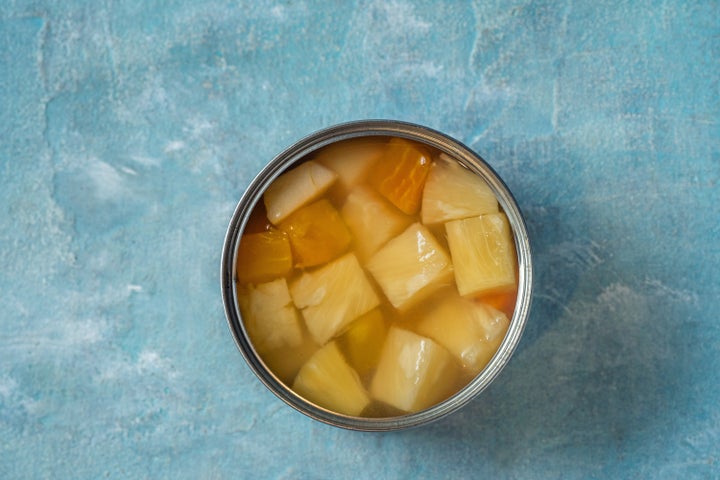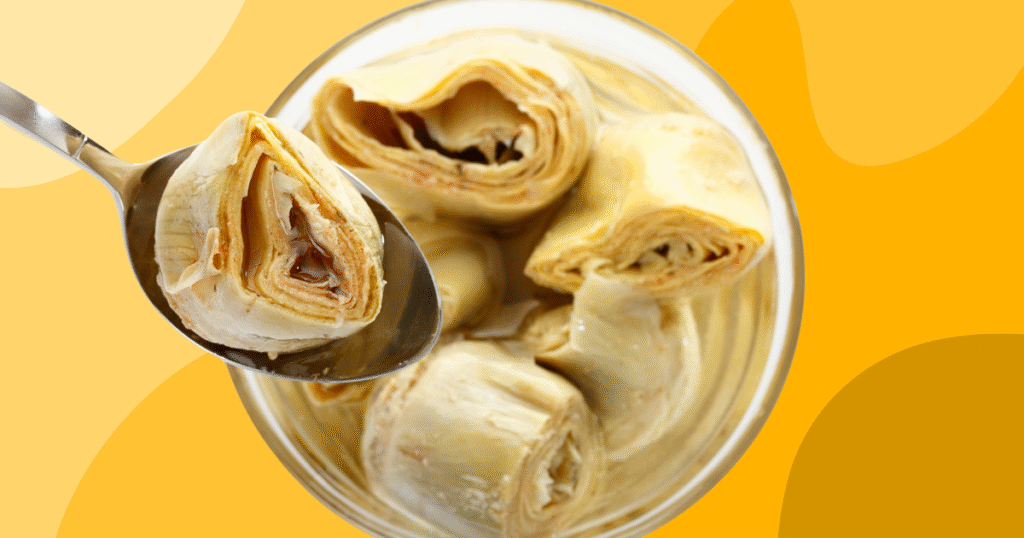With grocery prices climbing (again), I’ve been leaning hard on my pantry — especially canned staples like legumes, canned salmon, pumpkin and tomato — to do the heavy lifting in my kitchen. They’re budget-friendly, endlessly versatile, and don’t deserve the not-as-good-as-fresh reputation they often get.
“The idea that canned foods are less nutritious is a common myth,” explained Marissa Karp, a registered dietitian and the founder of MPM Nutrition. “While it’s true that some heat-sensitive nutrients, like vitamin C, can be reduced during the canning process, many other nutrients are preserved exceptionally well since the produce is typically canned at peak ripeness, right after harvest.”
In fact, canned options can be just as (if not more) nutrient-dense than their fresh counterparts. A review from the University of California, Davis, found that vitamin A, vitamin E, fiber and key minerals were comparable to fresh options. With that in mind, here are the top canned goods dietitians recommend stocking for maximum nutritional (and financial) payoff.
Artichokes
If you’ve never tried artichokes, let alone considered them for your pantry, Karp wants you to think again. “They’re incredibly high in fiber — more than any other vegetable,” she said. “Just one can of artichoke hearts packs in about 5 grams of dietary fiber, which not only helps keep you feeling full but also acts as a prebiotic, feeding the good bacteria in your gut.”
Even better? No trimming, boiling or wrestling with thorny leaves. Canned artichokes are already prepped and ready to use. Just drain and enjoy. Toss them into a salad, blend into a dip, or air-fry with a sprinkle of Parmesan for a crispy, craveable snack. (Just keep an eye on whether they were canned in water, oil or a marinade, as that can affect the nutritional content.)
Salmon
A protein option that’s packed with benefits and doesn’t break the bank? Enter: canned salmon.
“Canned salmon is a superstar, providing high-quality protein, omega-3 DHA and EPA, and vitamin D,” said Roxana Ehsani, a registered dietitian nutritionist and board-certified specialist in sports dietetics. “Sockeye salmon contains one of the highest natural food sources of vitamin D, which is needed to support heart, immune, bone and mental health.”
For the most sustainable choice, look for wild-caught, MSC-certified (Marine Stewardship Council) varieties, which ensure responsible fishing practices.
Plus, the precooked protein is ultra-convenient for those meals when you just can’t be bothered. “Canned salmon is a pantry staple I always keep on hand — it’s one of the most convenient protein sources out there. While many proteins require time to cook or prep, canned salmon is ready to eat in seconds,” Karp added.
Hearts Of Palm
Another underrated vegetable that deserves more love: hearts of palm. These ivory-colored stalks come from the inner core of certain palm trees and offer a satisfyingly crisp crunch that falls between that of asparagus and baby carrots. While you can occasionally find them fresh or in jars, canned is by far the most accessible and budget-friendly version.
“What makes them even more impressive is their high content of polyphenols, powerful antioxidants that help protect your cells from damage and support long-term health by reducing the risk of chronic diseases,” Karp said.
Toss them into salads, slice them into ceviche-style appetizers, or blend them into creamy dips for a plant-based twist on crab cakes or mayo-heavy spreads.
Beans
If you associate beans only with elementary school fart jokes, it’s time to rewrite the narrative. These are a bona fide nutritional powerhouse — rich in plant-based protein and loaded with fiber. A single cup of most types of beans contains 15 grams of fiber (60% of your recommended daily value for women and 40% for men), something most Americans are sorely lacking.
“The protein supports muscle growth and repair, while the fiber promotes healthy digestion and feeds the beneficial bacteria in your gut,” Karp shared.
Not a fan of the sometimes earthy flavor or mealy texture? Start with white cannellini beans, Ehsani suggested. “White beans are a delicious plant-based protein option also packed with essential nutrients like dietary fiber (supports gut health, healthy digestion), iron, magnesium and potassium,” she said. “Their mild flavor makes them super versatile, and they blend into both savory and sweet dishes, which picky eaters may not even notice.”

Canned Fruit (Especially Peaches And Pineapples)
You’ve probably heard the phrase “fresh is best,” but that isn’t always the case, especially when it comes to fruit. Like frozen produce, canned fruit is typically processed within hours of being harvested, according to Sharon Palmer, a registered dietitian nutritionist. This locks in nutrients that might otherwise degrade during long periods of transportation or while sitting on a grocery store shelf.
“Some people think that the quality is lower,” Palmer said. “But actually canned produce captures completely ripe, mature, delicious produce — unlike our modern system for fresh produce, which may be picked a week or more before it ends up in the supermarket.”
To get the most nutritional bang, opt for varieties canned in water or 100% fruit juice rather than heavy syrup, which can sneak in extra sugar.
Another great option is canned pineapple. “This tropical fruit packs a major vitamin C punch, which is essential for supporting immune health, collagen production and iron absorption,” Ehsani said. “Canned pineapple is also naturally rich in digestive enzyme, bromelain, which can help break down protein and support gut health. If you’re looking for a shelf-stable source of vitamin C, pineapple can be your new go-to.”
Read the full article here


